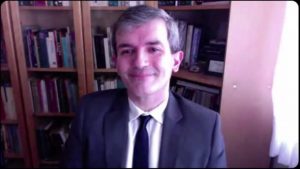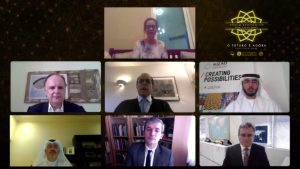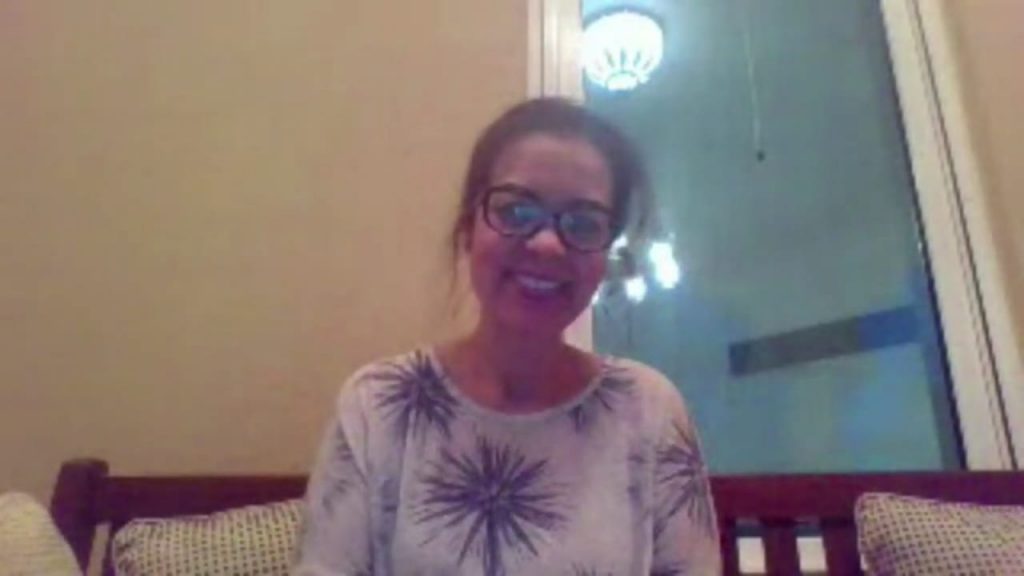São Paulo – Brazilian and Arab authorities believe that instead of focusing on attaining self-sufficiency in food production, countries must rethink their local production with an eye towards efficiency. The discussion took place within the panel “Food Security: A strategic partnership between Brazil and the Arab Countries?” this Wednesday (21) during the Economic Forum Brazil & Arab Countries.
The discussions were moderated by IC Publications CEO Omar Ben Yedder, featuring Alexandre Ghisleni, director of the Agribusiness Promotion Department at Brazil’s Ministry of Foreign Affairs. “We must not look at self-sufficiency as a goal to be attained. It goes so far as to be detrimental to food security,” said Ghisleni.

According to him, if the European Union were to attempt self-sufficiency in soy farming, for instance, it would take 137,000 sqm worth of plantations, not to mention the use of resources such as water. “International trade offers a solution to ensuring steady food supplies. This means that no country in the world can afford not to complement domestic production with imported goods to provide sufficient food for their population,” he concluded.
United Nations Food and Agriculture Organization (FAO) chief scientist designate Dr. Ismahane Elouafi (pictured above) believes that rethinking where food security investments are going is the way to ensure more intelligent local production. “Are we wasting resources? We used to think everything was alright, but the system is flawed and inefficient. The UN meeting we will have in 2021 will be about making the food system more efficient.”
Elouafi said regions’ profiles must be factored in when deciding what to grow. “To a great extent, whatever we need to do will depend on the region at hand. We need the correct ecosystem and the correct crop. Growing wheat in a region like the Arabian Peninsula would be a waste of resources. There are other much better suited crops. That’s where we will bring in the diversity of species, and we must consider water usage as well,” said the scientist, who’s also CEO of the UAE’s International Center for Biosaline Agriculture (ICBA). Elouafi also said partnerships between countries for science and trade are strategic, a case in point being the recently established ICBA-Embrapa agreement.
Jacyr Costa Filho, a Board member at Grupo Tereos and president of Cosag Tereos and the Higher Agribusiness Council, said domestic production of items such as sugar have helped ensure food security throughout the pandemic. “Brazil’s port and logistics system has worked really well, and we are breaking an all-time record in exports of sugar, which is a staple of Arab culture. We could expand on these relations by establishing partnerships between Brazil and the consumer countries to complement local production,” Costa Filho said.

Ricardo Santin, president at Brazilian Animal Protein Association (ABPA), pointed out the established, long-term relations with Arabs in Brazilian halal-certified poultry trade. “The consumers tend to leave the pandemic demanding more trust and having more trust in brands. Both in companies and halal certifications,” Santin said, adding that he expects to see more Arab investments in Brazil.
Henri Salem Sonbol from Saudi Arabia, CEO at International Islamic Trade Finance Corporation (ITFC), which operates investing in productive chains across the world, points out that COVID-19 came to prioritize the need to ensure the world food flow. “Agriculture has always been our priority. We make programs to support producers in different member countries. We are called the cotton bank of Africa. We’ve made large interventions supporting this and other crops,” Sonbol said.
As for investments, Khalid Ahmed Mohammed AlMarzooqi, Commercial Activities director at Khalifa Industrial Zone (KIZAD), pointed out the world has focused more on Arabs and Africa. “The Arab bloc will grow by 3.3% in the food sector by 2023,” he explained, pointing out that the change reflects the population and tourism growth in the region. “In fact, we import more than we produce. So, when we think in food security, we don’t think in just one model, but in supply and local productions, too,” he stressed.
The Economic Forum Brazil & Arab Countries is hosted by the Arab Brazilian Chamber of Commerce (ABCC) in partnership with the Union of Arab Chambers and the Arab League. The event started on Monday (19) and ends on Thursday (22). Check out the full coverage on ANBA.
Translated by Gabriel Pomerancblum & Guilherme Miranda




